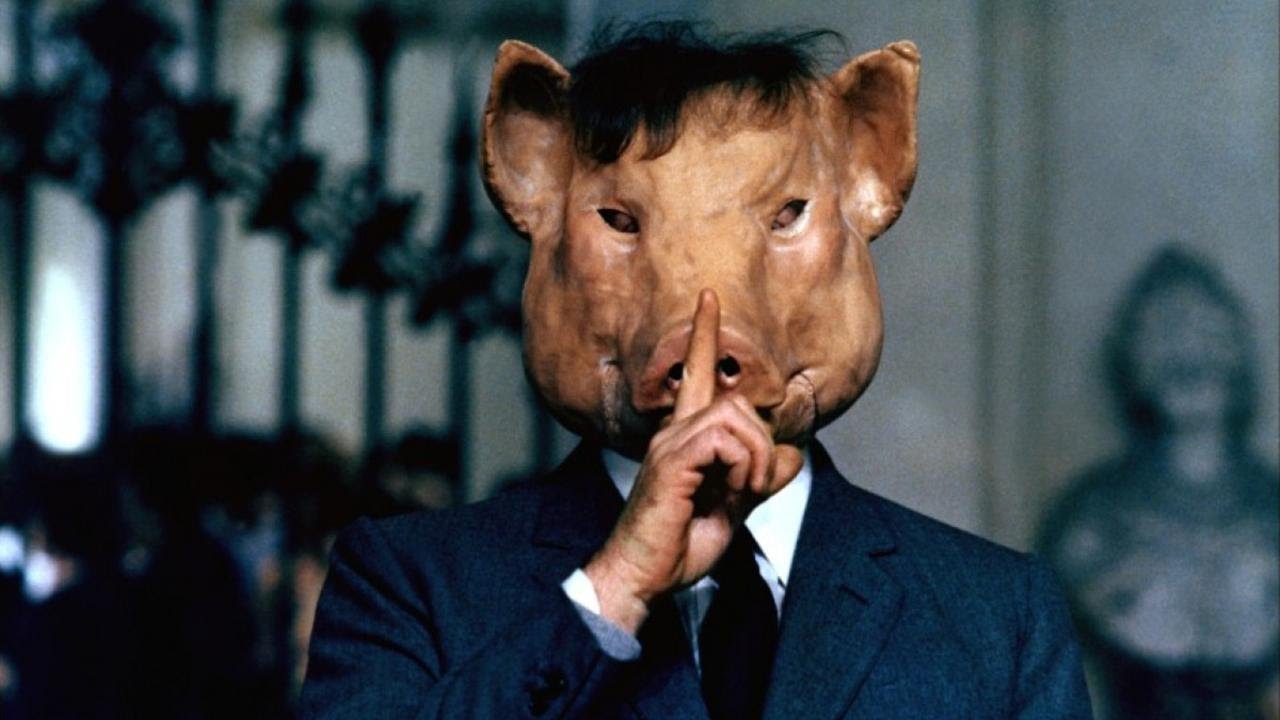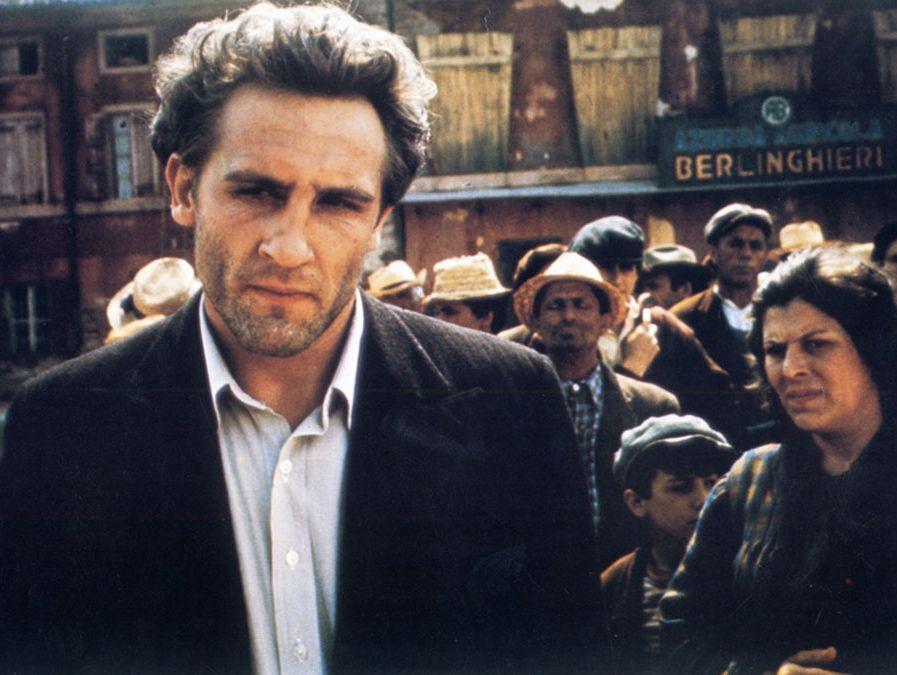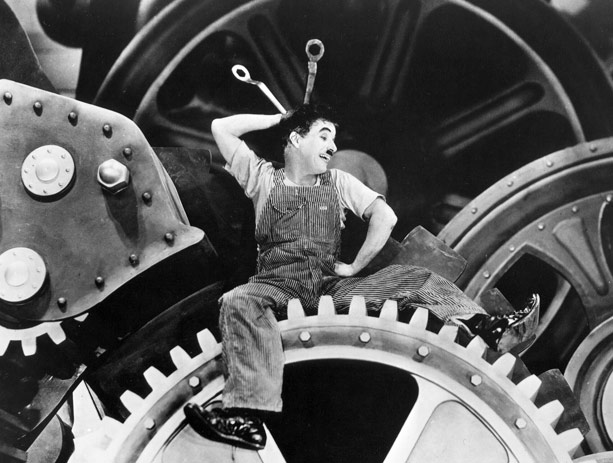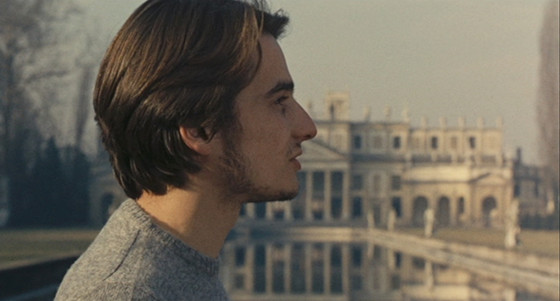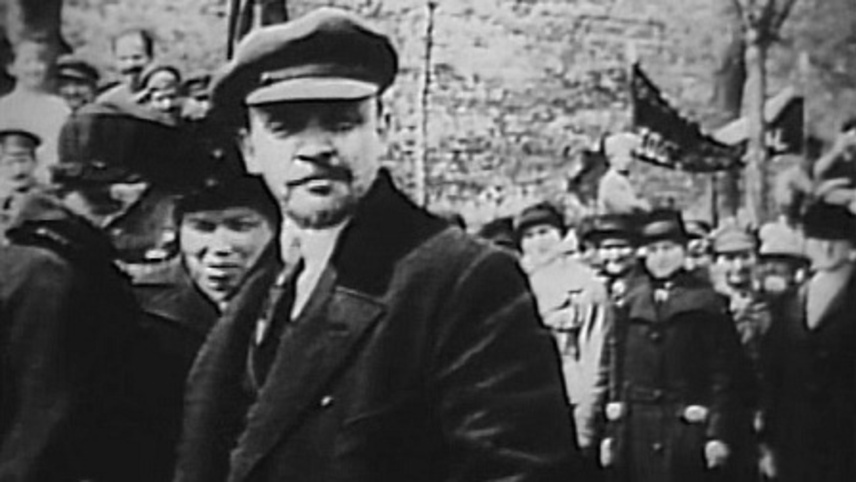Karl Marx was one of the most influential philosopher of all time and consequently his work has influenced a lot of films. The spectator faces Marxist problems such as: proletariat conditions, bourgeoisie dominance, the evolving technology and its connection to society, and revolution. Every problem is only a signal of the advent of the communist era, which consists of final justice on earth. This is the core of an entire movement which deeply influenced the world.
Obviously there were other philosophers, many influenced by Marx, who expanded those core elements in many other directions, some of them contemporaneous to him including Engels, Kautsky, Bernstein and others after his death (Rosa Luxemburg, Gyorgy Lukacs, Antonio Gramsci, Ernst Bloch).
Every one of them shared a faith in proletariat justice, where object and subject finally identify each other. Lower industrial classes are the “soil” for the revolution and will bring true values for all humanity but doing this demands the fall of the dominant industrialized class: the bourgeoisie. Fraternity is the key word to the basis of a community, and Communism is the ultimate community where humanity frees itself from physical and mental slavery.
Marx has never described a “communist” society but he gave some advice in his Critique of the Gotha Program. He said that capitalism is the world where slave-masses serve the few dehumanized bourgeoisies. Once this is known it’s easy to understand that for a film to be Marxist it should reflect reality as closely as possible. It should reflect the horribleness of bourgeois society and the honorable values brought about by the proletarian class.
That is a simplified point of view in respect to the Marxist way to see arts (in particular in respect to Lukacs’s literary theories), but it shows the core of this concept. In fact, during the Soviet era, the most common type of film coming from “red” countries,was the documentary. What ‘s better than reality itself to show how society and socialism work?
Exemplary examples are the “Kino-pravda” works created by Dziga Vertov. The main ideas expressed Marx evolved through time and in particular during the 67-68’ period which brought a sort of renaissance and reconsideration of the core Marxist ideas, which ends in a post-structuralist philosophical movement. In this final development of “revolutionary” ideas, Marx was an influence along with others, so it can be said that in cinema’s post-68’ period is not a continuation of the Russian montage school.
Considering the history of socialism and the history of cinema, there is a wide range of achievement among the movies influenced by Marx and these show many different aspects of Marx ideas, demonstrating the multifaceted dimensions of this movement. On the other hand it is possible to show what Marxism has meant to humanity through the eyes of a number of directors.
10. Novecento (Bernardo Bertolucci, 1976)
This film demonstrates what a useful concept communism was in fighting fascism in Italian society during World War II. Novecento is the story of two men, born in the same day in the same village. One is the son of a country worker (Gerard Depardieu) and the other one is the son of the landholder (Robert DeNiro). They have different social backgrounds but grow together in friendship.
This movie is 5 hour long and considers other problems related to everyday life, love, and relationships, but the political aspect remains an undercurrent which keeps the film going. Poor people are too weak and ignorant to potently fight the rising fascist power and only when war comes to Italy they can start to form partisan rebel armies.
Marxism is the secret root that “feeds” the struggles of this movie, because everything is, at bottom, moved by social injustice. At the end the populist elements rising against the landowner resolves all the problems but only momentarily.
9. Modern Times (Charlie Chaplin, 1936)
A classic movie by Charlie Chaplin is a Marxist film? Chaplin was always sensitive to social problems. England has always been the land of socialist battles. Highgate cemetery is a sufficient proof of how deeply related England is to Marx’s life.
This film could be seen as a social accusation toward industrialization . If one wants to better understand what proletariat alienation is, this is the film to see. This movie is based on a simple concept which it explains well through stereotypical and ironic characters.
A society that works in a crazy context cannot be fit for man, who continuously searches to be free. If it is only a critical film more than constructive one, it reflects a particular aspect of industrial proletariat problems, a very old problem that is a socialist vindication but at the same time, is the basis of Marx’s philosophy.
8. Porcile (Pier Paolo Pasolini, 1969)
Pasolini was one of the novelists who deeply embraced the Marxist philosophy. This film also reflects the hypercritical attitude in Pasolini’s cinema towards the bourgeoisies.
Porcile is split into two sections: one is a story about a rich family heir who is about to marry but also loves animals more than humans. The second part revolves around a cannibal looking for victims. The first part represents the moral alienation of an upper class man who cannot feel love anymore while his father thinks only about money. The second is a symbolic translation of a self-eating mankind, which cannot resist destroying a part of itself in favor of another part.
Marx comes through as a philosopher who shows moral degradation in spite of a final idea of perfection. Man can reach that plateau but doesn’t want to.
7. Earth (Alexander Dovzhenko, 1930)
Dovzhenko is one of the great names of the Russian montage school, which includes other directors such as Eisensten, Vertov, Pudovkin and Kuleshov. This film is a representation of the technological change brought by revolution.
This film posits other ideas but shows that Marxism could be seen as a prime mover. After the New Economic Policy ended in 1929, Russian organization of rural activities changed forever in 1930. Kolchoz arrival signed a point break in communist society.
Earth is the perfect example of the meaning of the changes in order to better understand the consequences of some decisions. Obviously Dovzhenko’s purpose was not to focus only on Russian reforms but to go further into the epic changes. He defined his cinema as a cine-poem. The spectator will notice the end of Kulaks, the forced collectivization of lands, the end of Ukrainian independence from Stalin’s decisions and the end of the New Economic Policy.
6. Three Songs about Lenin (Dziga Vertov, 1934)
This is not a fictional film but a documentary and represents the influence of Lenin in Russian culture and history. At the same time the spectator may notice the deep political exaltation of the dictatorship figure. This is the passionate homage of a director to a “people’s hero”.
If someone looks at this documentary without any political bias, one could understand the political situation in 1934 Russia. The sense of exaggeration is always present, but facing this means facing what was to be a Russian under Stalinism. That means Lenin must be seen as savior with no discussion allowed.
